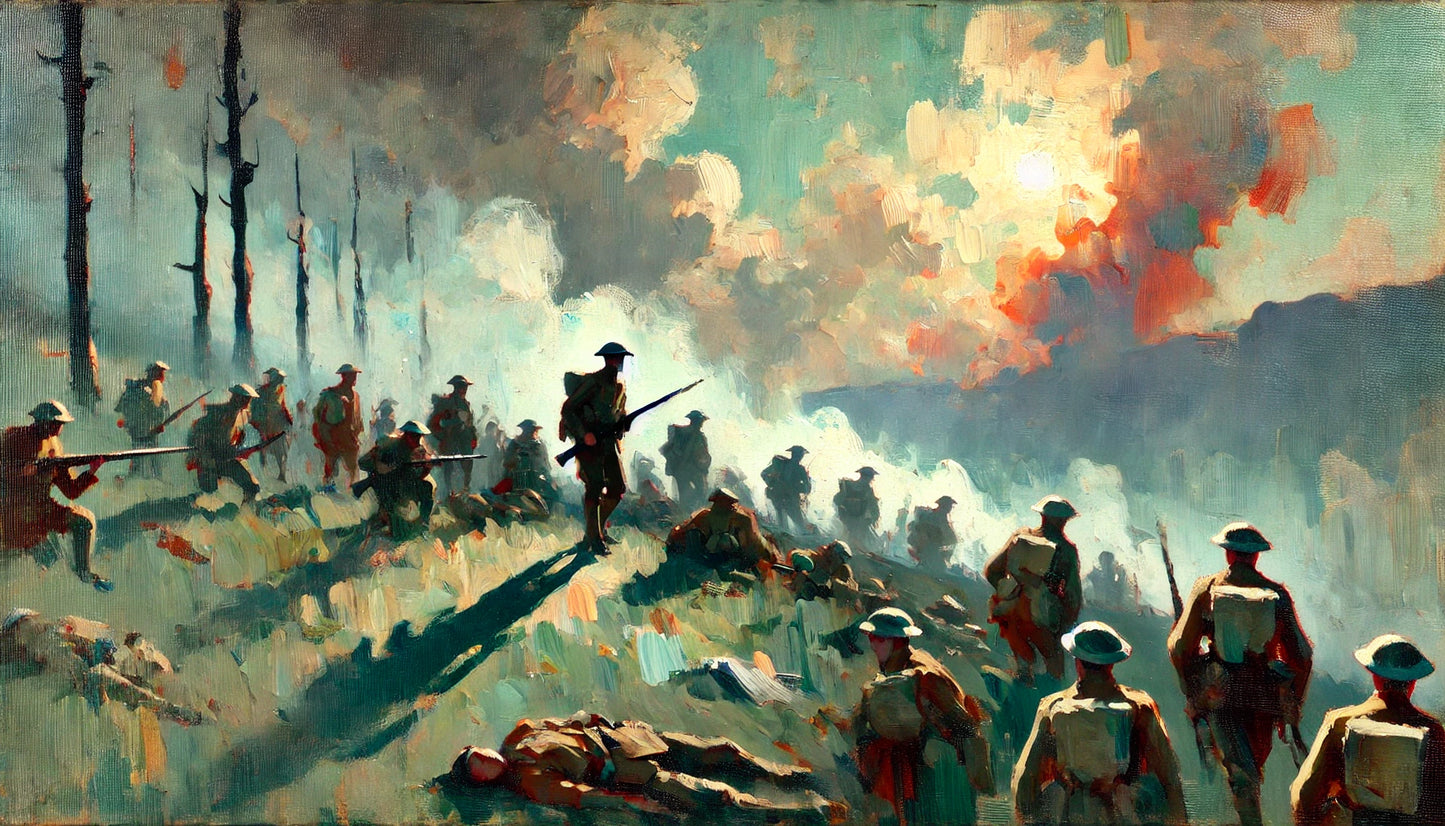Essence of Conflict – Form of Transformation
Essence of Conflict – Form of Transformation
Minimalizm
Historia i wojna
Lead time
Lead time
⏳ Delivery time
The order processing time depends on: the production technique, the drying time of the paints, the size of the image and any hand-finishing and protection.
🖼️ Art print on canvas
-
High quality canvas printing :
- Canvas - synthetic canvas 260 g
- Natural Canvas - 260 g cotton canvas
- Stretching the canvas onto the frame
- Quality control and packaging
Total completion time:
🎨 Oil Giclée Reproduction (print + hand-finished)
-
Giclée print on canvas:
- Canvas premium - natural cotton canvas 360 g
- Pigment print drying
- Hand finishing: texturing and oil painting
- Paint drying (depending on layer thickness, medium type and format)
- Stretching the canvas onto the frame
- Quality control and packaging
Total completion time: –
🚚 Ready-made paintings – shipped within 24 hours
Our gallery has a special category called "Ready-Made Paintings" - these are works available immediately, already stretched on a frame or in a ready-made frame.
- They are 100% ready for immediate shipment
- Safe packaging in a reinforced cardboard box
Shipping takes place within: from the date of booking the order.
Image format: Reprodukcja Oil Giclée
Need a different size? Contact us.
Couldn't load pickup availability
1. Title
"The Essence of Conflict – The Form of Transformation"
2. Description of the image
"Essence of Conflict – Form of Transformation" is a minimalist vision of war that needs no figures, weapons, or noise—shapes, color, and rhythm are enough to tell the story of tension, loss, and transformation. Reduction to key forms gives the image a universal dimension—this is not one battle, but every battle. Flat structures cut through space like decisions, like boundaries, like questions. Bright accents of color are like explosions of emotion—short, intense, remembered forever. This is not a scene of battle, but its echo—pure, graphic, reflective.
3. Technology
Oil on canvas, with subtle, fine brushwork and dry, precise drybrush transitions. Glazes and soft, broad strokes create a space of silence and light. The painting is technically sparse, yet with full painterly awareness—as if each line were a spoken whisper.
4. Style
Emotional minimalism with influences from modernist war posters. Inspirations draw from Bauhaus aesthetics and Japanese Zen, as well as geometric abstraction. A style that doesn't narrate, but meditates.
5. Colors
Reduced, yet striking. Black as the backdrop of the story, white as the empty space left by the event, and one or two colors—like a wound or a point of resistance. The colors here are symbolic: they don't represent things, but moods.
6. Invoice
Delicate, almost invisible in places, allowing the shapes and colors to dominate. Smooth glazes juxtaposed with rough dry brush strokes create a tension between calm and tension. It's the texture of an unspoken thought.
7. Inspiration
The work of Ellsworth Kelly , Kazimir Malevich , and the war posters of the 1940s, which communicated power through symbol and color, are also inspirited. Philosophy also inspires reflection on how to simplify in order to deepen, not reduce.
8. Message and multidimensionality of interpretation
The painting suggests that war doesn't always scream. Sometimes, only a line remains—between life and memory, between decision and consequence. This work, rather than describing, encourages reflection: on the cost of change, on the role of the individual in the collective, and on the space of internal conflict.
9. Originality and authenticity
Original because it forgoes literalness without losing emotional depth. Authentic because it's honest—not showy, but meaningful. It's an image that doesn't need much to say everything.
✨ Sometimes a single slash of color says more than entire war stories. ✨
Share


